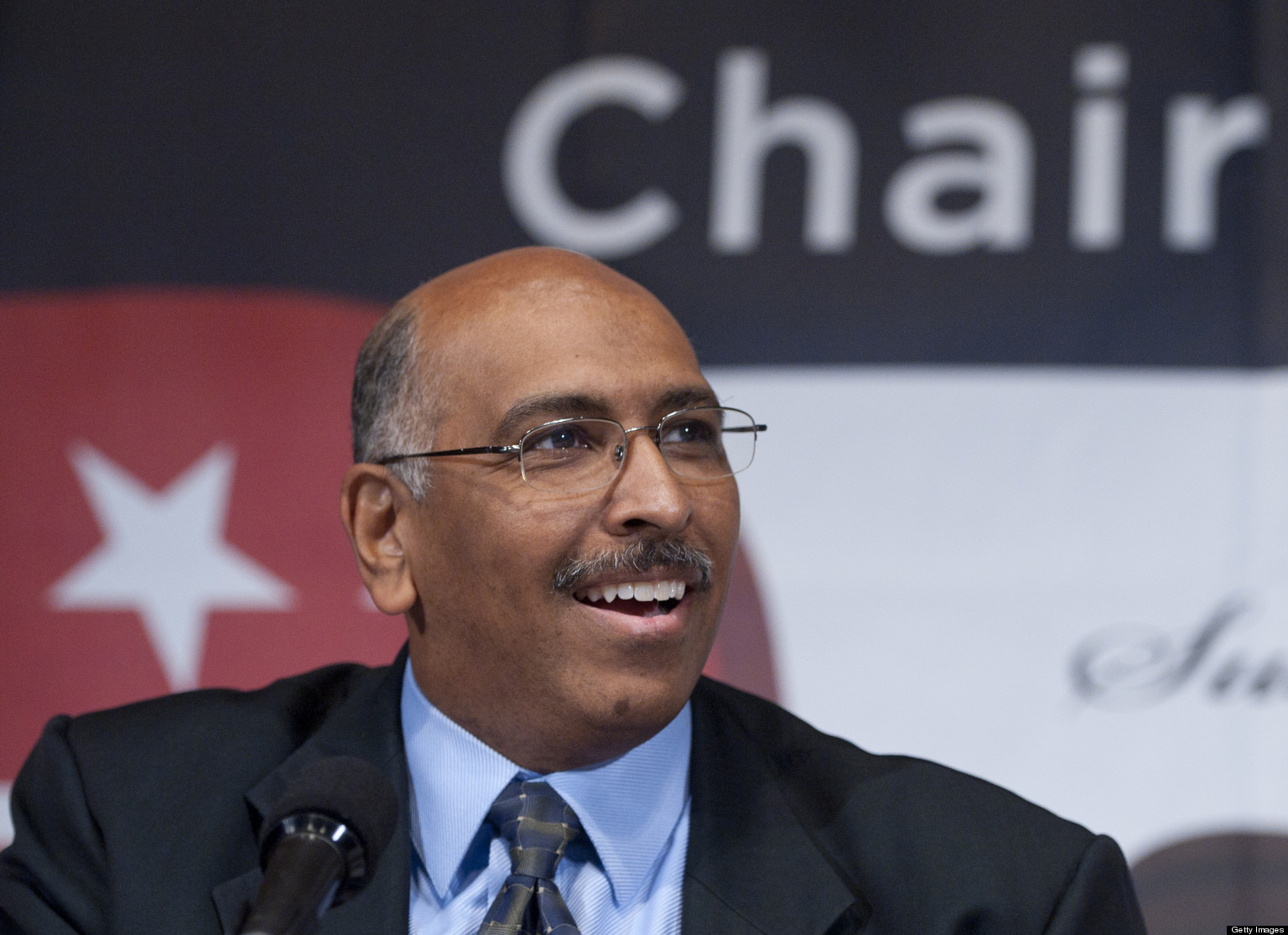Michael Steele is a prominent figure in American politics and media, known for his groundbreaking achievements and outspoken personality. As the first African American to serve as the chairman of the Republican National Committee (RNC), Steele has carved out a unique space in the political landscape. His career spans politics, media, and advocacy, making him a multifaceted public figure whose contributions continue to shape discussions on race, leadership, and governance. Whether you're familiar with his work or just discovering him, this article dives deep into Michael Steele's journey, offering insights into his life, career, and lasting influence.
Born as Michael Anthony Steele in Maryland, he grew up in a working-class family and faced numerous challenges early in life. Despite these obstacles, Steele's determination and intellect propelled him to achieve academic and professional success. His story is one of perseverance and ambition, embodying the American dream in many ways. Steele's early exposure to law and politics set the stage for his future endeavors, as he navigated a path that would eventually lead him to national prominence.
In this article, we'll explore Michael Steele's biography, career milestones, and contributions to society. We'll also examine his impact on the Republican Party, his media presence, and his role as a thought leader. By the end of this piece, you'll have a comprehensive understanding of Michael Steele's life and why he remains a significant figure in today's political and social conversations. Whether you're here for research or curiosity, this article aims to provide valuable insights into his journey and legacy.
Read also:Savannah La Rain A Comprehensive Guide To The Rising Star
Table of Contents
Biography of Michael Steele
Michael Steele's biography is a testament to his resilience and determination. Born on October 19, 1958, in Washington, D.C., he grew up in Prince George's County, Maryland, a predominantly African American community. His upbringing in a modest household instilled in him the values of hard work and perseverance. Steele's parents, William and Maureen Steele, emphasized the importance of education, which played a pivotal role in shaping his future.
Steele's early exposure to law and politics came during his college years. He attended Johns Hopkins University, where he earned a Bachelor of Arts in International Studies. Later, he pursued a Juris Doctor (J.D.) degree from Georgetown University Law Center. These academic achievements laid the foundation for his career in law and public service.
Throughout his life, Steele has been a trailblazer, breaking barriers and challenging stereotypes. His journey from a working-class family to becoming a national political figure is an inspiring story of ambition and resilience. Below is a table summarizing key details about Michael Steele's personal and professional life:
| Full Name | Michael Anthony Steele |
|---|---|
| Date of Birth | October 19, 1958 |
| Place of Birth | Washington, D.C. |
| Education | Johns Hopkins University (B.A.), Georgetown University Law Center (J.D.) |
| Political Affiliation | Republican |
| Notable Role | First African American Chairman of the Republican National Committee (2009–2011) |
Early Life and Education
Michael Steele's early life was marked by challenges that shaped his character and ambitions. Growing up in Prince George's County, Maryland, he was raised by his mother, Maureen, a single parent who worked tirelessly to provide for her family. Steele's father, William, was largely absent during his childhood, but his mother's unwavering support and emphasis on education left a lasting impression on him.
Steele attended DeMatha Catholic High School, a prestigious private school in Maryland, where he excelled academically and athletically. His performance earned him a scholarship to Johns Hopkins University, where he majored in International Studies. During his time at Johns Hopkins, Steele developed a keen interest in global affairs and public policy, which fueled his desire to pursue a career in law and politics.
After completing his undergraduate studies, Steele enrolled at Georgetown University Law Center. His legal education equipped him with the skills and knowledge necessary to navigate the complexities of the legal and political systems. Steele's academic achievements not only opened doors for him professionally but also positioned him as a role model for aspiring leaders from underrepresented communities.
Read also:Ryans World Controversy Unpacking The Issues Surrounding The Popular Kids Channel
Political Career Highlights
Michael Steele's political career is defined by his groundbreaking achievements and his commitment to expanding the Republican Party's reach. He first gained national attention in 2000 when he was elected as the first African American lieutenant governor of Maryland, serving under Governor Robert Ehrlich. This historic win marked a significant milestone in Maryland's political history and showcased Steele's ability to appeal to a diverse electorate.
As lieutenant governor, Steele focused on education reform, economic development, and criminal justice reform. He played a pivotal role in advancing policies aimed at improving Maryland's public schools and fostering a business-friendly environment. His tenure in this role earned him recognition as a pragmatic and forward-thinking leader.
In 2009, Steele made history once again by becoming the first African American chairman of the Republican National Committee (RNC). During his tenure, he prioritized outreach efforts to minority communities and worked to modernize the party's messaging. Steele's leadership was instrumental in raising record-breaking funds for the 2010 midterm elections, although the party ultimately faced challenges in maintaining its momentum.
Key Accomplishments as RNC Chairman
- Launched the "RNC Roadmap for America's Future," a comprehensive policy platform.
- Increased minority voter engagement through targeted outreach programs.
- Raised over $1 billion for Republican campaigns during his tenure.
Leadership at the RNC
Michael Steele's leadership at the Republican National Committee was marked by both successes and challenges. As chairman, he faced the daunting task of rebuilding the party's image following the 2008 presidential election, during which the Republicans suffered significant losses. Steele's vision for the party centered on inclusivity and innovation, as he sought to broaden its appeal to younger and more diverse voters.
One of Steele's notable initiatives was the "RNC Roadmap for America's Future," a policy platform that addressed issues such as healthcare, education, and economic growth. This document aimed to position the Republican Party as a forward-thinking organization capable of addressing the needs of a changing America. Steele's emphasis on policy development demonstrated his commitment to offering substantive solutions to the nation's challenges.
Despite his efforts, Steele's tenure as RNC chairman was not without controversy. Critics accused him of mismanaging funds and failing to unite the party's factions. However, supporters praised his efforts to modernize the party's messaging and expand its reach. Steele's leadership style, characterized by his candidness and willingness to challenge the status quo, left a lasting impact on the Republican Party.
Challenges Faced During His Tenure
- Internal divisions within the Republican Party.
- Criticism over fundraising and spending practices.
- Resistance to his efforts to engage minority communities.
Media Presence and Advocacy
After stepping down as RNC chairman, Michael Steele transitioned into a prominent media personality and political commentator. His appearances on major networks such as MSNBC, CNN, and Fox News have cemented his status as a respected voice in political discourse. Steele's ability to articulate complex issues in a clear and engaging manner has made him a sought-after analyst and speaker.
Steele's media presence extends beyond television appearances. He is a regular contributor to opinion pieces and interviews, where he shares his insights on current events and policy matters. His advocacy for bipartisanship and inclusivity in politics has resonated with audiences across the political spectrum. Steele's willingness to challenge party orthodoxy and speak truth to power has earned him a reputation as an independent thinker.
In addition to his media work, Steele has remained active in advocacy and community engagement. He has supported initiatives aimed at promoting education, economic empowerment, and criminal justice reform. Steele's commitment to these causes reflects his belief in the importance of addressing systemic issues to create a more equitable society.
Key Achievements and Contributions
Michael Steele's career is marked by numerous achievements that have left an indelible mark on American politics. His groundbreaking role as the first African American lieutenant governor of Maryland and chairman of the RNC highlights his ability to break barriers and challenge conventions. Steele's contributions extend beyond his political roles, as he has consistently advocated for policies that promote inclusivity and equality.
One of Steele's most significant achievements was his work on education reform. As lieutenant governor, he championed initiatives to improve Maryland's public schools, including efforts to increase funding and enhance teacher training programs. His commitment to education reflects his belief in its transformative power to uplift communities and create opportunities for future generations.
Steele's advocacy for criminal justice reform is another area where he has made a lasting impact. He has spoken out against systemic racism and advocated for policies that address disparities in the justice system. Steele's efforts in this area underscore his dedication to creating a fairer and more just society.
Challenges and Criticisms
Despite his many accomplishments, Michael Steele has faced his share of challenges and criticisms throughout his career. As a trailblazer in the Republican Party, he often found himself at odds with more traditional elements within the organization. His progressive stances on issues such as race, education, and criminal justice reform sometimes clashed with the party's conservative base.
During his tenure as RNC chairman, Steele faced criticism for his fundraising and spending practices. Some party members accused him of mismanaging funds, while others questioned his leadership style. Despite these challenges, Steele remained steadfast in his vision for the party and continued to push for reforms that he believed would benefit the broader electorate.
Steele's outspoken nature has also made him a target of criticism from both sides of the political aisle. While some admire his willingness to speak truth to power, others view his candidness as divisive. Nevertheless, Steele's ability to navigate these challenges and remain true to his principles is a testament to his resilience and determination.
Personal Life and Family
Michael Steele's personal life is characterized by his strong family ties and commitment to his loved ones. He is married to Andrea Steele, a former television producer, and the couple has two children. Steele often credits his family for providing him with the support and encouragement needed to pursue his ambitious career goals.
Outside of his professional endeavors, Steele enjoys spending time with his family and engaging in hobbies such as golf and reading. His love for sports and literature reflects his diverse interests and well-rounded personality. Steele's ability to balance his public and private life is a testament to his prioritization of family values.
Steele's faith also plays a significant role in his life. A devout Catholic, he has spoken openly about the influence of his religious beliefs on his worldview and decision-making. His faith has guided him through both personal and professional challenges, providing him with a sense of purpose and direction.
Legacy and Influence
Michael Steele's legacy is one of trailblazing achievements and enduring influence. As the first African American chairman of the Republican National Committee, he broke new ground and paved the way for greater diversity within the party. Steele's leadership style, characterized by his candor and willingness to challenge conventions, has inspired a new generation of leaders.
His advocacy for inclusivity and bipartisanship continues to resonate with audiences across the political spectrum. Steele's efforts to engage minority communities and promote policies that address systemic issues have left a lasting impact on American politics. His commitment to education, economic empowerment, and criminal justice reform underscores his belief in creating a more equitable society.
Steele's influence extends beyond his political roles, as he remains a prominent voice in media and advocacy. His insights on current events and policy matters continue to shape public discourse, making him a respected figure in the political landscape. As a thought

